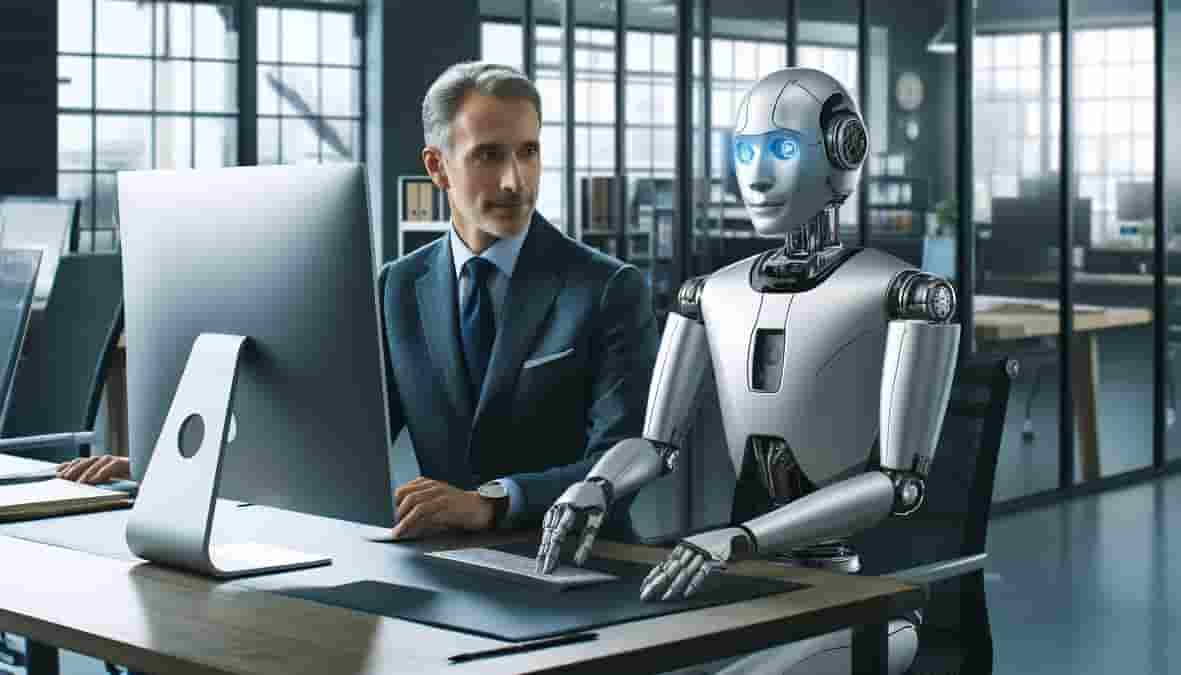Nearly two-thirds of British workers anticipate that the skills required for their jobs will undergo transformations in the next five years according to a recent report. The Future of Work Report highlights that 15% of employees expect these changes to be significant as technology, especially artificial intelligence (AI), becomes more prevalent in everyday work environments as was covered back in 2019 by The Workers Union in our AI and the future of working life article.
An impressive 63% of UK workers believe that their roles will need new skills soon, pointing to a rapidly evolving job landscape. Interestingly, a substantial number of workers (34%) view the impact of AI on their roles positively, and a whopping 89% feel confident in their ability to adapt to future changes.
Despite the general optimism, there is a notable split in perceptions about AI’s role and impact on automation and technology in the workplace. While 58% of workers think that AI will lead to more job losses than creations, 40% feel capable and 27% feel prepared for the upcoming changes. Meanwhile, another 25% of the workforce is excited about potential developments.
The survey also revealed that workers see AI as superior in performing tasks such as data analysis, which three out of five workers agreed could be better handled by AI than humans. Other areas where AI is seen as advantageous include routine tasks and tasks requiring high levels of attention to detail.
However, in areas requiring creativity, critical thinking, and emotional intelligence, humans are considered irreplaceable. Respondents rated humans higher than AI in customer service, critical thinking, decision-making, and content creation, with emotional intelligence topping the list, where 71% believe humans excel over AI.
The report indicates that certain sectors may be more resistant to AI integration. According to the UK respondents, skilled tradespeople are seen as the least likely to be replaced by technology, a sentiment echoed globally. Following them, employees in hospitality, food services, and healthcare are also viewed as resilient to AI disruptions.
Regarding professional development, most workers (59%) believe it is the responsibility of employers to help them adapt to changes by investing in skills for the modern world. On-the-job training is considered the most effective preparation for the shifts anticipated in the next five years, although online learning has been the most prevalent form of training recently.
Danny Stacy, UK head of talent intelligence at Indeed, emphasized the importance of employers ensuring their teams are prepared for technological shifts. He noted the need for alignment between the training offered by employers and the types of learning that employees find most beneficial. “Employers must continue to ensure that their workforce is ready to deal with this shift, which can be done with training and upskilling, especially on technical aspects of job roles and through learning on how to work alongside automation,” said Stacy.
The brilliant in-depth survey involved 16,671 participants, including employees, employers, and HR decision-makers, with 2,279 respondents from the UK, providing a broad perspective on the future of work and the potential impact of AI on various job sectors to cover the digital skills gap in the UK workforce.
The Workers Union Says…
“It’s of vital importance in valuing skills that cannot be automated, such as creativity and decision-making, to foster a workplace where employees are not just comfortable but excited about their evolving roles.”




